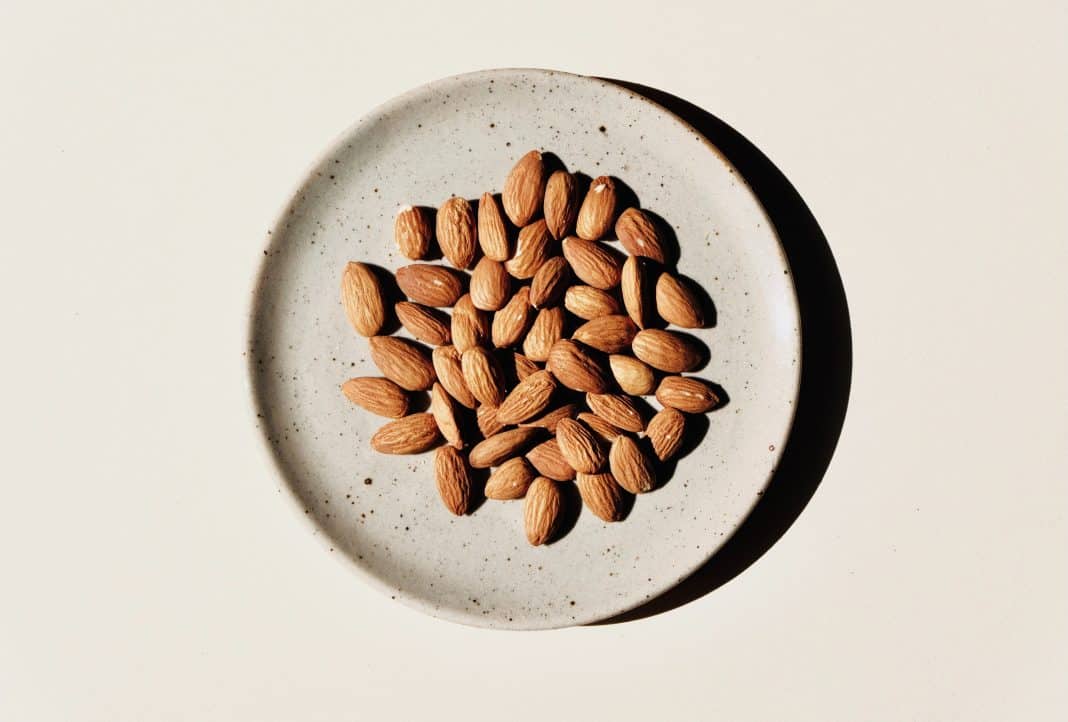Similar to about 30 percent of the world’s population, I live with insomnia. These days it’s not nearly as bad as it used to be, but it’s still not uncommon to find me reading at 1 a.m. or for me to wake up at exactly 2:04 a.m. Over the last several years I’ve tried any number of things to help me sleep better, and I have actually found a few things that really do help.
Although I can’t explain why I wake up at exactly 2:04 a.m. many nights, I have found that on the occasions when it happens and I can’t get back to sleep, it’s usually because I’m hungry. I’ve learned that grabbing a small snack just before bed can help me avoid waking up hungry and can even help me fall asleep a lot faster. Of course, snacking right before bed can have its own drawbacks. Snacking on foods that are high in carbs late at night can lead to weight gain, and some foods can even keep me awake as my stomach works to process the food. That’s where almonds come in.
Almonds are an amazing food. A single handful of almonds is packed with protein and can completely satiate my hunger. Better than just staving off hunger, almonds are packed with five specific nutrients that can actually improve sleep.
Tryptophan
Most of us are familiar with tryptophan as the excuse for why Thanksgiving dinner knocks us out. Tryptophan is an amino acid that produces two key neurotransmitters, melatonin and serotonin. Melatonin helps keep your body’s clock regulated so that you get tired at night and wake up in the morning, and serotonin helps regulate your mood, keeping you from being depressed (which can also keep you from sleeping well). Almonds beat out turkey in the tryptophan race by a mile. The truth is that although turkey is high in tryptophan, the real reason for that post-turkey nap has more to do with the massive amount of carbs we typically consume as part of the Thanksgiving meal.
Magnesium
Studies have shown that even a small deficiency in magnesium can lead to disturbed sleep. Magnesium helps with muscle function, leading to a state of relaxation; a deficiency may even lead to restless leg syndrome, which can severely affect sleep. Magnesium specifically increases deep slow-wave sleep, enhancing both sleep duration and efficiency, allowing you to sleep better and wake feeling more refreshed.
Calcium
Increased calcium can increase the hormone melatonin, which helps you feel sleepier. Studies have even found that calcium levels are the highest in our bodies during our deepest sleep. This is one of the reasons why a warm glass of milk has long been a staple insomnia cure. Of course, calcium and magnesium work together, with a lack of either causing you to wake up after just a few hours and be unable to return to sleep.
Niacin
Stress can lead to depression and anxiety, both of which can negatively affect sleep. Niacin plays a key role in stress regulation, helping to relieve both anxiety and depression, leading to a better night’s sleep.
Protein
The longer you go without food the more likely it is that your blood sugar will dip. That dip is often the reason why you wake up in the middle of the night. Eating a snack that’s high in protein will keep that dip from occurring.
There are a million things you could eat as a bedtime snack. Many of them will have some of the nutrients found in almonds, but few provide you with the protein, niacin, calcium, magnesium, and melatonin found in a single almond. Those nutrients work together to create a powerhouse food that can satiate your hunger, calm your nerves and muscles, and help you sleep better. It’s no wonder that almonds are considered a superfood.



